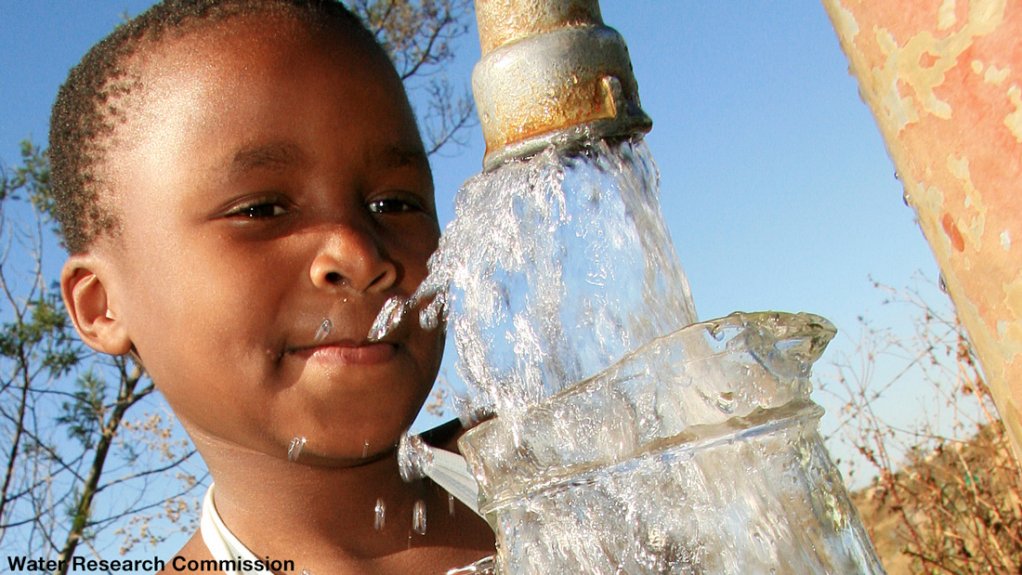The barrier to efficient water service delivery in South Africa was not of a technological nature but rather related to legal and Constitutional challenges, Water Research Commission (WRC) CEO Dhesigen Naidoo said on Thursday.
Opening a WRC debate under the theme ‘Could Constitutional changes improve municipal water supplies?’ University of the Witwatersrand (Wits) Law School head Professor Vinodh Jaichand also stated that South Africa’s water challenges were no longer scientific.
“We have worked out [the scientific aspects] and have robust solutions. The barriers [we face] are not technological but rather social, cultural, legal and constitutional,” he said.
Also speaking at the debate, Wits Professor Tracy Humbly pointed out that South Africa’s Constitution gave municipalities an extreme level of autonomy over service delivery.
The Constitution, she added, gave provincial government the right to intervene only if the municipality failed and also made it difficult for national government to intervene. She suggested that Constitutional changes might be desirable to address the problem.
Speaking as part of the panel Wits Professor and National Planning Commission member Mike Muller pointed out that, over the past 20 years, about 23.5-million South Africans had been supplied with access to water – an improvement that was unprecedented internationally.
“[However], our achievements are under threat as it appears that service delivery is being undermined by technical and institutional challenges,” he said, emphasising that the country’s problems did not relate to technological, resource or even financial shortages.
“The key immediate challenge is institutional . . . agencies given the right [to certain functions] in terms of the Constitution not doing their job,” he stated, There was a lack of proper management and planning, a lack of human capacity in the right roles and not enough community involvement and support.
Muller stated that this was partially as a result of “patronage politics” being at play, with the wrong people having been appointed or the wrong tenders having been awarded for political reasons.
“There are no measures in place to deal with this,” he said.
To deal with South Africa’s water service delivery challenges Muller suggested creating conditions in which personal and political gain came from achievement of good services through sound management, strengthening support for weak municipalities and seeking to find collaborative solutions without intervening to take the power from municipalities unless they had failed.
“A Constitutional amendment must only streamline intervention and make it a credible threat – not take services over,” he argued, adding that a Constitutional amendment should, therefore, be part of a larger strategy.
That bigger strategy had to include a local government support programme, the empowerment of regional utilities, an agreement on minimum national standards and financial approaches to support these interventions.
Naidoo urged that a greater sense of partnership be forged between municipalities and other forms of government, while cautioning against an over centralisation of power nationally, which could have the unintended consequence of moving service implementation even further from affected communities and lowering community participation.
The South African Local Government Association’s Advocate Reuben Baatjies added that he did not believe changing the Constitution would result in an improvement in service delivery.
He argued that the belief that a change in the Constitution would benefit the water service delivery situation was based in the incorrect assumption that national and/or provincial government had capabilities absent at the local government level.
“But national government does not have experience in the provision of services,” he said.
EMAIL THIS ARTICLE SAVE THIS ARTICLE
To subscribe email subscriptions@creamermedia.co.za or click here
To advertise email advertising@creamermedia.co.za or click here











